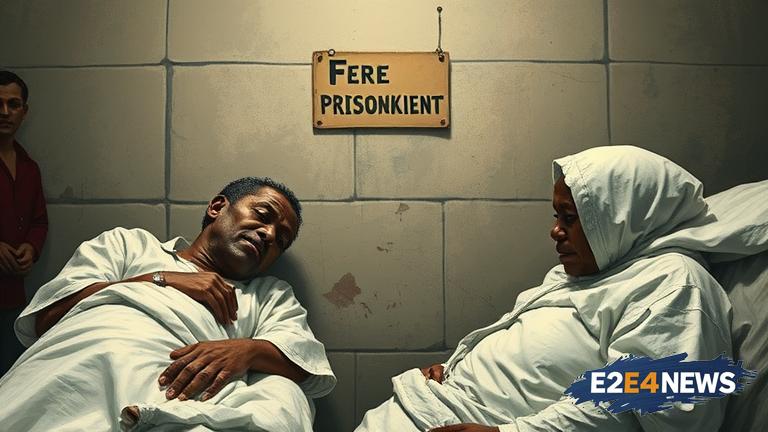The medical parole system in South Africa has been under fire for its alleged failure to provide timely and adequate care to dying prisoners. Despite being designed to release terminally ill prisoners who are no longer a threat to society, the system has been criticized for its inefficiencies and lack of compassion. Many prisoners have been left to suffer and die behind bars, without access to proper medical care or the opportunity to spend their final days with loved ones. The system’s failures have been attributed to a range of factors, including bureaucratic delays, inadequate medical assessments, and a lack of transparency and accountability. Human rights organizations and advocacy groups have been vocal in their criticism of the system, arguing that it is inhumane and unconstitutional. They point to cases where prisoners have been denied medical parole despite being terminally ill, and where those who have been released have been left to fend for themselves without adequate support or care. The issue has sparked a national debate about the need for reform and the importance of upholding human rights and dignity, even for those who have been convicted of crimes. The South African government has been accused of failing to prioritize the needs of dying prisoners, and of neglecting its obligations under international human rights law. The medical parole system has been in place since 2002, but it has been plagued by problems and controversies throughout its history. Despite efforts to reform the system, many of the same issues persist, and the number of prisoners who are dying behind bars continues to rise. The situation has been described as a crisis, with many calling for urgent action to address the systemic failures and ensure that dying prisoners receive the care and dignity they deserve. The issue is not just a matter of human rights, but also of public health, as the spread of diseases such as tuberculosis and HIV is a major concern in overcrowded and unsanitary prison conditions. The medical parole system is designed to prioritize the release of prisoners who are terminally ill or severely disabled, but in practice, it has been criticized for being slow and inefficient. Many prisoners have reported waiting months or even years for their applications to be processed, only to be denied or delayed. The system’s reliance on medical assessments has also been criticized, with some arguing that the assessments are often inadequate or biased. The lack of transparency and accountability has made it difficult to track the number of prisoners who are dying behind bars, or to monitor the effectiveness of the medical parole system. However, it is estimated that hundreds of prisoners are dying in South African prisons every year, with many more suffering from serious illnesses or disabilities. The issue has sparked a national outcry, with many calling for reform and an end to the systemic failures that are allowing dying prisoners to suffer and die behind bars. The South African government has been accused of neglecting its obligations to protect the human rights and dignity of all prisoners, regardless of their crimes or circumstances. The medical parole system is just one part of a broader crisis in the South African prison system, which has been plagued by overcrowding, violence, and corruption. The issue is a complex one, requiring a comprehensive and multifaceted solution that addresses the root causes of the problem and prioritizes the needs and dignity of all prisoners. Ultimately, the failure of the medical parole system is a failure of the entire justice system, and a reminder of the need for urgent reform and action to protect human rights and dignity in South Africa.
